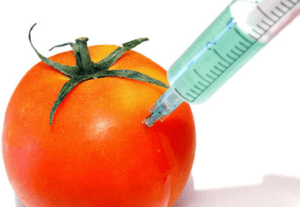Utterance of politicians confused on benefits of GMOs – Peasant farmers
 Peasant farmers in the Upper West Region say utterances of some political actors have made it difficult for them to accept Genetically Modified Organism (GMO) crops and breeds to help boost food production.
Peasant farmers in the Upper West Region say utterances of some political actors have made it difficult for them to accept Genetically Modified Organism (GMO) crops and breeds to help boost food production.
The farmers said politicians in the country have confused and blurred their decision on the benefits of genetically engineered crops and animal breeds which are intended to raise agricultural output and ensure global food security.
Mr Issahaka Abubakar, a farmer from Kaleo, said: “When this GMO whole thing started the politicians were talking and talking, and other experts were talking, so we as farmers were confused as to which way to follow.”
“But today, this presentation has given us a lot of education about GMOs and it is going to help us when we get the seeds so that we can also increase our yields,” he said.
Abubakar was speaking to the Ghana News Agency during a training organised by Open Forum on Agriculture Biotechnology (OFAB) Ghana for farmers on biotechnology in Wa.
“I urge my colleague farmers that we have to embrace this technology, it is going to help us a lot to get more yields,” he said.
He also called on Ministry of Food and Agriculture and the state to quicken action on GMP adoption saying: “I think government should expedite action on this whole matter on GMOs so that come next year (2019), we will get the seeds”.
Madam Paulina Yirimambo, who is into maize, rice, beans, groundnuts and Bambara beans farming, said improved seeds would help increase food production and aid Ghana to meet the Sustainable Development Goal (SDG) two.
The SDGs two seeks workable solutions to end hunger by 2030 and to achieve food security for good-quality healthy life.
It requires better access to food and widespread promotion of sustainable agriculture to improve productivity and incomes of small-scale farmers by promoting equal access to land, technology and markets, sustainable food production systems and resilient agricultural practices.
“We’ve heard a lot on how we will get improved seeds to get a good yield but because we are local farmers, we don’t know we have to use improved seeds so that we will get a good yield,” Madam Paulina said.
“We want them [government] to make the improved seeds available for us so that we will get good yield next year and get good harvest,” she said.
The training sought to highlight the benefits of using improved technologies to improve agriculture output which Madam Paulina said: “It is something good because we didn’t know about it but today I have heard something good about it”.
“And I know that is a good practice for farmers to go in for next year” she said: “Farming is not only for consumption but now we know farming is a business”.
Madam Salia Leticiam, another multiple crop farmer, said she had negative perception about GMO crops as harmful and would be disadvantageous to farmers, “but coming to this place, I now know it’s a good thing”.
“I will go and inform my people we have a group,” she added: “I never knew there was something that will help us so that we won’t complain about fertilizers and chemicals”.
Dr Richard Ampadu-Ameyaw, OFAB Ghana Coordinator, described negative impressions created about biotechnology and GMOs as very unfortunate.
He said OFAB is determined to help Ghanaian farmers understand the benefits of GMOs to them and the nation.
“The technology is going to help produce quality seeds – but it does not mean that current technology used in producing conventional seeds is not going to produce quality seeds any longer”, he said.
Upper West Region is at the North-Western corner of Ghana where population pressure is higher and severe soil erosion is becoming a problem, which would require improved technology to boost food production.
The region is, basically, agrarian with about 80 per cent of the economically active population engaged in agriculture.
Many of the growers are impoverished smallholder farmers facing multiple challenges – inadequate income for inputs, inaccessible extension services and lack access to modern technology – to boost production.
The government has introduced an aggressive programme – planting for food and jobs – and subsidised fertilizer to help address the farmers concerns nationwide.
Source: GNA
